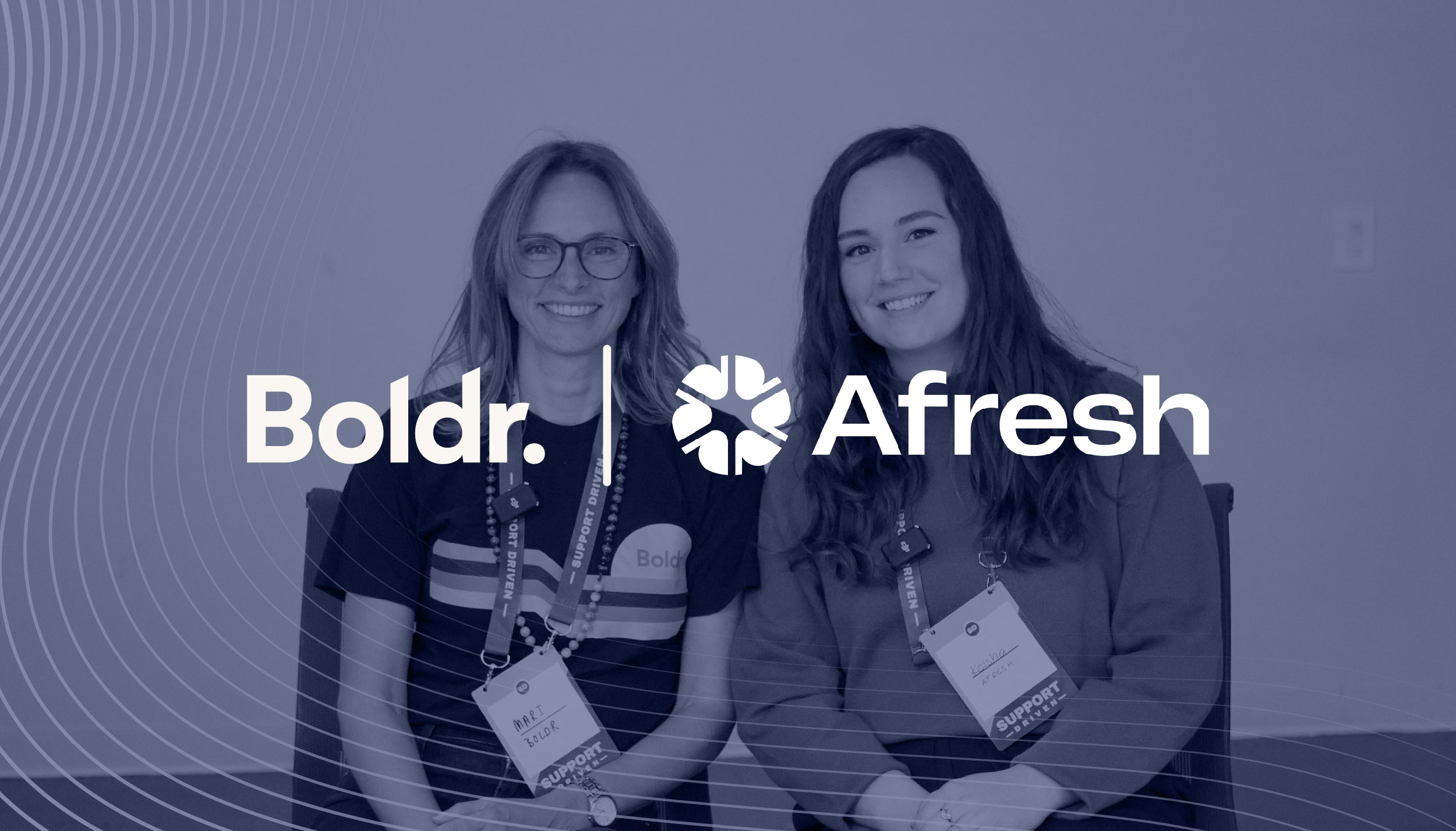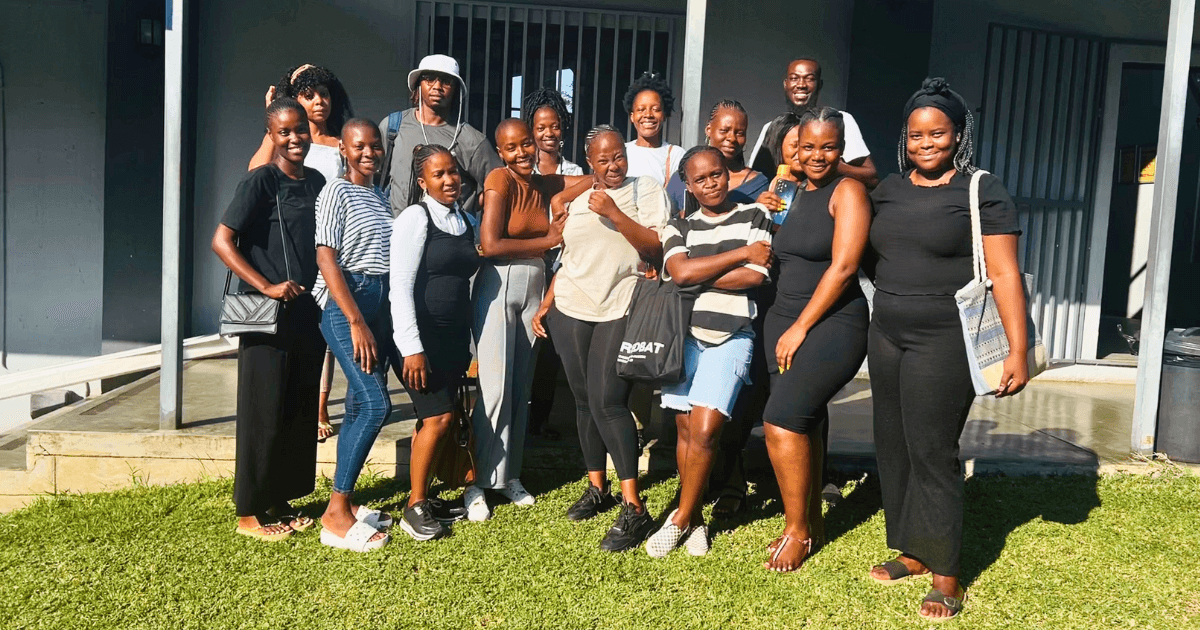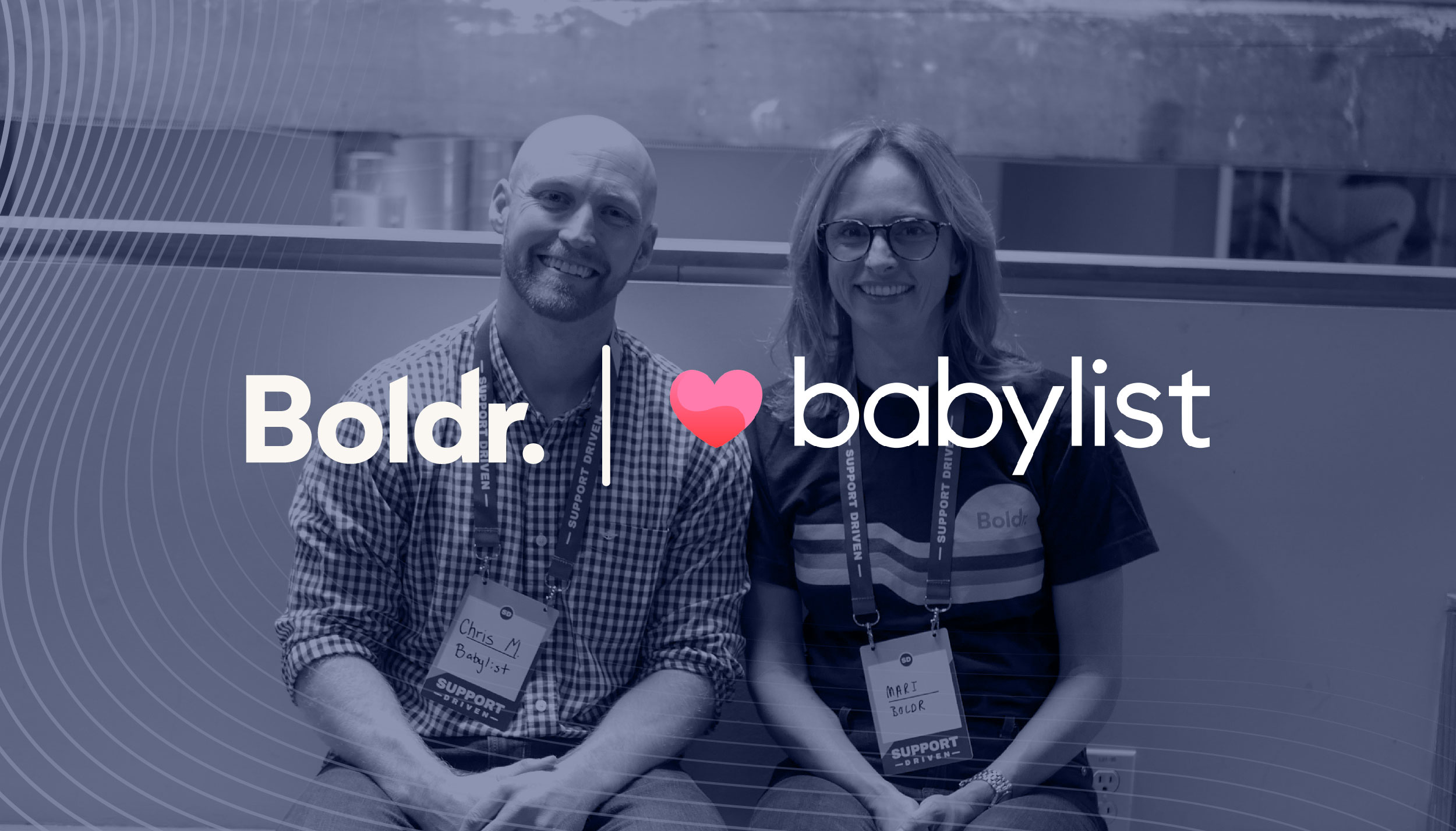During the Support Driven Conference in 2023, Boldr's COO, Mari Parker, met with Keisha Armand, the Director of Support at Afresh. Together they delved into pivotal topics currently shaping the CX and outsourcing landscapes. Knowing when is the right time to outsource, working with a mission-driven partner, and the benefits of hiring through impact sourcing, were some of the highlights of the discussion.
The following transcript has been edited for clarity and ease of publication:
MARI: Hi, I’m Mari Parker, and I have the pleasure of having a quick chat with Keisha from Afresh.
KEISHA: I’m Keisha. I work at Afresh. We’re a company that prevents food waste in grocery. I am the Director of Support there. I’ve been there for about three years.
MARI: And we have support engineers with you guys, right? What’s the difference between a support engineer and a normal support person?
KEISHA: I think support engineers are a bit more technical. Our baseline expectation for our team is that they’re able to write SQL. So they have to query the database system to look at customer data and glean insights about what is going wrong with the app or the product in general.
MARI: What was it that happened within Afresh that made you think that you need to work with a partner?
KEISHA: I was really lucky. When I first started at Afresh, there was no support team. So it was just me answering tickets. They wanted me to build a team that fits the needs of our customers and the product It was a cool opportunity to imagine something from the ground up. Early on, I knew that eventually, we would need an international team because we're a product that grocery stores use early in the morning, sometimes overnight. A lot of the processes of transferring data that can break, happen overnight.
The very first need that we understood would arise, was around the time of day that you could receive support. Growing the team just in the US wouldn’t cover enough windows, or the windows where our customers needed support the most, unless we had them work overnight shifts. That was probably the first thing where we understood, hey, we need to grow our team internationally to allow us to scale. I think the other bit was, we knew that we were going to be rolling out at one big customer. That would mean we’d need to reach this level of scale that we just hadn't faced before and that our little team wasn't big enough to handle alone. We needed to signal to our investors that we were growing scalably and in cost-effective ways, as support is cost of goods sold, and also scale the team up to handle the onslaught of incoming volume that we were expecting.
MARI: Were you excited about the idea of outsourcing in the beginning?
KEISHA: No. I was not. Honestly, I saw it as a necessary evil. It was something that I didn't know anything about and my initial impressions were very uninformed, kind of one-sided, and believed that it was kind of going into other countries and exploiting labor. It made me uncomfortable and I didn't really want to do it. But I knew that it was the solution for our company. Those warring mentalities in my head were what spurred my search for an ethical outsourcing company.
The way I ended up finding Boldr was through the Support Driven community. I reached out on Slack in an outsourcing channel and I just asked, Hey, I am curious, here’s my perspective on outsourcing. I feel a little uncomfortable with it, but I know I need to do it. Does anyone have advice about ethical outsourcers out there? Does that even exist?
I got a ton of engagement and Boldr reached out to me on that channel. It was right. Match made in heaven. It was the perfect connection I needed to make at that moment. The first interaction with the Boldr team was with David and Ray in a video call. And it was like, Hey, we’re a mission-driven company. We want to work with a mission-driven partner. Tell us about your values and your sort of ethics and how you do this. It felt right right away.
MARI: What’s your experience been?
KEISHA: From a business-oriented standpoint, we set out KPIs with Boldr early on that were super measurable. We wanted KPIs around meeting a certain volume threshold, a speed threshold, quality, and then what we’re calling innovation, which is like, Are we creating new documentation? Are we improving our processes? Are they staying stale because our new team isn’t thinking critically about them?
We wanted to prove beyond a reasonable doubt, and with data, to back up the success of the partnership. From that standpoint, you guys blew it out of the water. It made it easy to convince
the senior leadership at Afresh that this was worth leaning into and worth engaging in, in terms of a partnership. From that perspective, it was easy. It was provable. It was objective.
Further to that, the change that was brought about by Boldr was this:
Our product is a mission-critical product for our customers, so it absolutely has to work. Has to work on time. Our response times are really fast and as a result, we knew we had to have an on-call rotation for our support team and they would be on call seven days a week. They would be called most nights, on weekends, like everything. It was intense for them. We knew that that wasn't going to be scalable. One of the biggest changes from connecting with Boldr is that now you’re on call during your shift and when you’re not working, you're not working. That change has been a monumental positive shift for the team. That's one of the biggest markers of success.
The last thing I'll say is that we see them, our Boldr teammates, as being teammates. It's not a separate entity that is disconnected from us. We intertwine our teams, we talk all the time. We are in Zoom calls all the time, problem-solving. They do projects with us. We put special care into making sure they felt like they were part of our organization and working toward the same mission. That speaks to the quality and the engagement of team members.
MARI: I would love to know your experience or your feedback on what makes a partnership a partnership, instead of just a transactional relationship, when you try out something new. And if it doesn't work out?
KEISHA: A big part of working with Boldr has been this awareness that if something had gone wrong or if there were challenges it was easy to bring it to our Boldr team and say, Hey, we're not saying exactly what we want here.
If we can be articulate in our definition of success. Like you were saying earlier, What does good look like? What do we want out of this? What do we think good support looks like for our customers? Are we delivering that? And if not, where's the delta? And how can we work together to bridge the gap? When you have that partnership mentality, it changes the dynamic. It's like you're problem-solving together. You're not trying to figure out solutions to hard problems by yourself when you have a group of people who have done it multiple times before, with learnings from other companies that they can apply here.
MARI: We’ve done a lot of work to integrate the impact we wish to have on the world into our economic engine, so that it can be sustainable impact. We learned early on that if we have our impact part of what we do, that feel good stuff, on the side, then it puts that at risk because at some point it can be excluded from the business model. We went down a path to define our theory of change and define how is the economic engine of this business making an impact on the world. And a big part of that has been impact sourcing. I believe you are one of the clients that have experimented with that with us. Can you talk to me about your experience? And how did that go?
KEISHA: We're doing it right now, which is kind of cool. We had a time where we were going to be launching a whole bunch of new grocery stores that needed support. We knew from groups like Data Analysis that there was a kind of peak in value in the volume of submissions. When you first roll out at this new customer, they'd submit more tickets, then they get familiar with it. It meant that we would have this peak moment where we needed extra support that would eventually figure out and we didn't need full-time hires. So we understood we have this temporary period where the extra coverage happens to coincide with the holiday, which is very important to grocery.
We knew that during that time it was kind of a crunch period for us to get extra support on some of the easier tickets. We reached out to Boldr and we asked what ways we can work with you on seasonal hires, just temporary staff who could supplement that high volume period. They suggested that we explore impact partners. I think the two we considered were Girlcode in South Africa and Life Choices in Cape Town. The idea was that we would enter into this community and offer these more junior roles for folks.
Boldr would help upskill them with bootcamp-style training so that they could perform things like SQL, to have that base level of technical expertise that is required to perform the job. In so doing they have exposure to this technical role to a U.S. company and something to put on your resume.
What was really wild about it, is that all the people we worked with are just stellar. They're just so kind and care deeply about the mission. They are engaged with the work. There are a couple folks that were excited about becoming full-time hires on the other side of this. It’s a cool way to partner and to try to make some impact in a community that otherwise wouldn’t have had access to roles like this. Through Boldr, I’ve learned a lot about South Africa, in particular. I believe there’s a 30% unemployment rate. We have this opportunity to help create jobs out there.
MARI: If you're talking to a fellow support leader who is curious about outsourcing, maybe just wrap it up with three or four bullet points of how to set a partnership up for success.
KEISHA: I think the first thing is, know if you're ready. Do you have the structure in place to understand what success looks like for your business, for your customers, to bring in this outside entity to work on this body of work and execute it with the levels of quality that you are looking for. Until you can articulate that definition of quality, I don't think you'll get it from any partner. Start with a clear definition of success.
The other thing is, see an outsourcing partner as people, as part of the group of people who are delivering on your mission, on your happy, positive experience for your customers. Find an outsourcing partner that believes in that level of quality and care that you do. If you just go with a partner that is the cheapest out there, you're going to be paying for the quality. That was a big part of working with Boldr.
Then, if you have the link to the mission and the effort, the bandwidth to pursue something more mission-driven, it's so worth it. You have people who stick around longer, who believe in your mission, who are passionate about your project, who push themselves to do well. They take feedback, they grow. It’s just a different experience than if it was a job that you don’t really care about.


